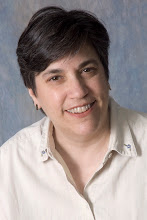4 key retirement planning decisions: Roseman
Whether you retire early or late, you will make some big financial decisions. So, plan ahead and think things through.
Whether you retire early or late, you will make some big financial decisions. So, plan ahead and think things through.
Whether you retire early or late, you will make some big financial decisions. Your goal is to turn your government benefits, pensions and savings into a lifetime income.
Let’s go through the decisions one by one.
When will you apply for Canada Pension Plan?
You can take CPP retirement benefits starting at age 60 and get a reduced amount. You can take benefits at 65 and get a full amount. Or you can defer benefits after 65 (until 70) and get an enhanced amount.
Service Canada has helpful questions to ask in deciding when to take your CPP retirement benefits.
How will your age affect your monthly payment?
Do you plan on working while receiving your pension?
How long did you make CPP contributions? How much did you put in?
What kind of lifestyle do you want when you retire?
How much do you get? You can find the amounts paid at age 65 at Service Canada’s website: The average payment is $633 a month, while the maximum payment is $1,038.
Related: 4 reasons to take CPP early
When will you apply for Old Age Security?
You must be 65 to qualify for an OAS pension. Starting in April 2023, the age of eligibility will increase gradually to age 67. This change will affect people born in 1958 or later.
You have the option of deferring your OAS pension for up to 60 months after the date you become eligible in order to get a higher amount.
You may want to defer OAS if your income is high enough to put you into clawback territory. The government calls it pension recovery tax.
You will have to repay part of your OAS if your income exceeds $71,592 in 2014. You will repay the whole thing if your income is $115,716. (This applies to individual income, not household income.)
How much do you get? The maximum monthly amount for OAS recipients is $551.54 in the current quarter.
You can also get a guaranteed income supplement if your income is low. The threshold is $16,728 including full OAS pension for individuals and $22,080 for couples who are both receiving full OAS pension.
When will you convert your RRSPs into income?
Everything you hold in registered retirement savings plans must be cashed in or converted to income by Dec. 31 of the year you turn 71.
You can convert RRSPs to a registered retirement income fund (RRIF) or a life annuity any time. You don’t have to wait until 71.
Once you open your RRIF, you will have to make a minimum withdrawal that grows each year and pay full tax on the withdrawal.
You may want to convert your RRSPs earlier than the deadline and transfer any money not required for daily spending into a tax-free savings account or non-registered investment account.
This strategy can help you get more control of your taxes and avoid being pushed into a higher tax bracket. For retirees, it’s the after-tax income you have to consider, not the pre-tax income.
Will you replace your employee benefits?
You may have benefits that are paid for or subsidized by your employer. These include dental, optical, pharmaceutical and chiropractic benefits.
These benefits may be cut back when you retire – or when you turn 65, even if you are still working. Should you get coverage on your own? How much would you pay?
Heather Freed, a certified financial planner, helps guide people through the transition from group benefits to individual insurance.
The cost to replace health and dental benefits for a family is $250 to $350 a month, she says. The cost for a single person is $125 to $175 a month. These are average costs and exclude life insurance and disability benefits.
Before making a decision, there are two important things to know, says Freed. What is the value of your employee benefits? What coverage do you have and how many claims do you make?
If you’re a frequent user of employee benefits, find out if you can convert them to individual policies. The conversion deadline may be tight. So, pay attention and don’t delay.
These decisions can be challenging. Consider their implications carefully and find competent advisers to help you on your journey.
Ellen Roseman writes about personal finance and consumer issues. You can reach her at eroseman@thestar.ca or www.ellenroseman.com



